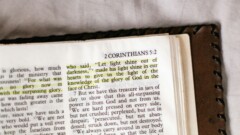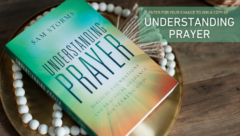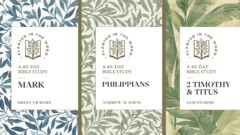The Prius Fallacy: “a belief that switching to an ostensibly more benign form of consumption turns consumption itself into a boon for the environment.” That’s how David Owen, in his recent Wall Street Journal article, “It’s Too Easy Being Green,” defines the Prius Fallacy. Here’s how he illustrates it in action:
A favorite trick of people who consider themselves friends of the environment is reframing luxury consumption preferences as gifts to humanity. A new car, a solar-powered swimming-pool heater, a 200-mile-an-hour train that makes intercity travel more pleasant and less expensive, better-tasting tomatoes—these are the sacrifices we’re prepared to make for the future of the planet.
He lays on the sarcasm pretty thick in that last sentence, but in case you don’t catch it in the article he finishes with the clarification, “Our capacity for self-deception can be breathtaking.”
Owen’s article is insightful and rather humorous as he considers what many of us find ourselves thinking about consumption: that by substituting what we would ordinarily consume with a different product (which, typically, also happens to be nicer, more expensive and “greener”) we’re somehow consuming less. But that’s not true. The result is that we actually end up consuming more, and justifying it more.
Even when we act with what we believe to be the best of intentions, our efforts are often at cross-purposes with our goals. Increasing the efficiency of lighting encourages us to illuminate more. Relieving traffic congestion reduces the appeal of public transit and fuels the growth of suburban sprawl. A robust market for ethanol exacerbates global hunger by diverting cropland from the production of food.
Near the end of the article he gets at the heart of what is going on:
We may believe that we care about the world’s deepening environmental challenges and are merely waiting for scientists, environmentalists, politicians and others to come to their senses and implement effective solutions. But we already know more than enough, and we have for a long time. We just don’t like the answers.
He doesn’t quite get into biblical terminology (“greed,” perhaps, or “selfishness;” maybe even “idolatry”) but that is essentially what he concludes is the heart of the problem with human consumption. In other words, the issue is not that we’re consuming the wrong things; the issue is that we’re consuming so much and still aren’t satisfied. And a great way we’ve found to feed this greed is to portray our new purchases as virtuous “sacrifices,” offerings made selflessly to the gods of environmentalism (neverminding that being “environmental” also happens to earn you a lot of praise these days).
I appreciate what Owen has to say here and think that, even though he doesn’t name it for what it is, he is identifying the real problem behind our planet’s environmental issues: the sinful human heart.
More greed will not save us from the effects of our past and present greed. Only by believing in Jesus Christ and his Word, and having our contaminated minds cleansed and our polluted hearts restored by his blood, can we rightly acknowledge the true source of our planet’s problems and learn how to steward it better. And all the while we know that our hope is not ultimately in seeing the earth in its present form restored but in one day witnessing Christ replace it, new and unbreakable and unpolluted, for his people to enjoy forever.










